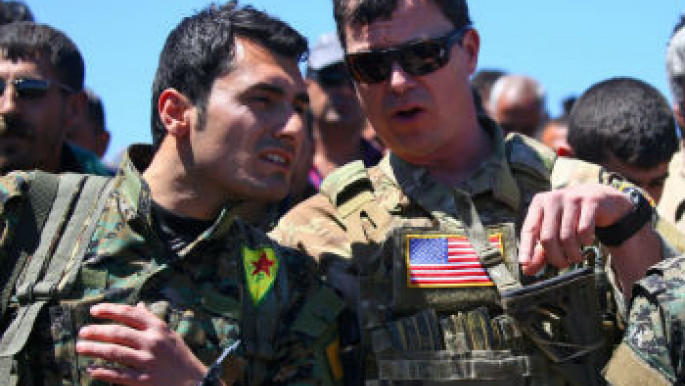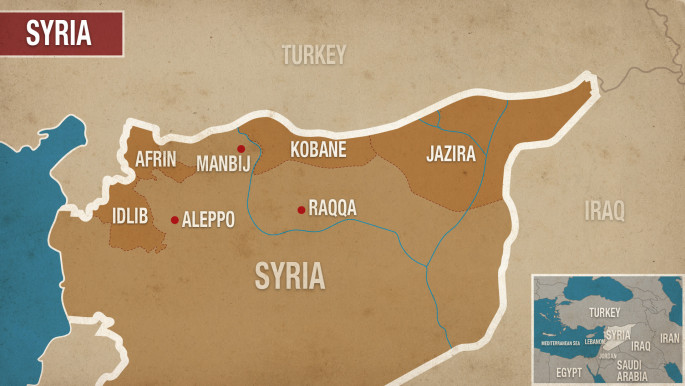Turkey orders US to 'immediately withdraw' from Manbij
Hours earlier, Ankara claimes the US pledged to stop arming the YPG, amid strained ties between the two allies during Turkey's offensive in Kurdish northern Syria.
"It's necessary for them [US] to immediately withdraw from Manbij," Turkish Foreign Minister Mevlut Cavusoglu said.
The Turkish presidency announced earlier on Saturday that Washington would "not give weapons to the YPG" militia, relaying a phonecall on Friday evening between US National Security Advisor HR McMaster told Turkish presidential spokesman Ibrahim Kalin.
Turkey launched "Operation Olive Branch" on 20 January against the Syrian Kurdish People's Protection Units militia, supporting Syrian opposition fighters - including the Free Syrian Army - with ground troops, armour, artillery and air strikes.
Erdogan declared on Friday his intention to expand the offensive first to the town on Manbij, and subsequently all the way to the Iraqi border.
He said this was in order to annihilate "terrorists" in the region, referring to the YPG.
Relations between NATO allies Ankara and Washington have been hugely strained by the offensive, with Washington urging restraint as civilian and military casualties mount.
Washington also fears Turkey's offensive will impact the US-led coalition's fight against the Islamic State group in the region.
One of the major issues marring relations between the two countries was the US supplying the YPG with weapons for its fight against IS, which the US has done since May 2017.
 |
|
| The US and Kurdish YPG have become close allies in the fight against IS, however its allegiances may be changing [Getty] |
The 50,000-strong YPG has been a key ally of the US in eradicating the jihadi group from northern Syria, as part of the Syrian Democratic Forces (SDF).
With the support of the US-led coalition's air power and special forces, the SDF led the battle last year against IS during which the militants lost their de facto capital of Raqqa.
During Friday's phonecall between McMaster and Kalin, officials cited Turkey's "legitimate security concerns" over Kurdish control of northern Syria, and the pair agreed to coordinate closely in order to prevent misunderstandings, the presidency said in a statement.
The call came just days after Washington and Ankara bitterly contested each other's accounts of a telephone conversation between Erdogan and US President Donald Trump.
A White House statement said Trump urged Turkey to "limit its military actions" in Afrin.
However, this was contested by a Turkish official who said that Erdogan had told his US counterpart of his intention to target Manbij.
Furthermore, Turkish officials said in November that Trump had promised to stop supplying arms to the YPG but said such action was never taken.
Ankara designates the YPG is a "terrorist" offshoot of the outlawed Kurdistan Workers' Party (PKK), which is proscribed as a terror group by Ankara and its Western allies.
The PKK has waged an over three-decade insurgency against the Turkish state in order to obtain autonomy, which was met with brutal and bloody crackdowns, resulting in about 40,000 people being killed since the 1980s.
Although many admire Turkey's ardent support of the Syrian opposition and their rights in the face of the tyrranical Assad regime, many have called in to question Turkey's ruthless treatment of the Kurds.


